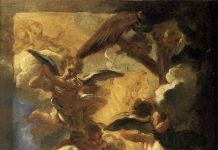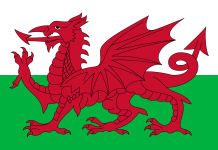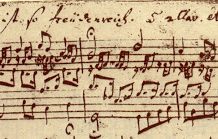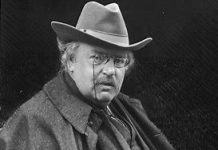(John Hartley presents a three-part series of Saint John Henry Newman’s views of education. Here is the first, on the commemoration of the great Oratorian.)
This essay will critically evaluate Saint John Henry Newman’s contribution to philosophy of education, in order extricate implications for catechesis. Much has been written concerning Newman’s idea of further education, but less has been dedicated to outlining Newman’s philosophy of education, including secondary phases, and considering specifically the implications for state-maintained Catholic schools navigating twin loyalties between the respective visions of education of the state and the Holy See. Finally, this essay will consider the implications for the concurrent debate between inductive and deductive pedagogy to argue that Newman’s Philosophy of Education and his advocacy of the collegiate system, as manifest in the earliest university tutor systems, and later incorporated into his own life’s work, is a preferable model for contemporary catechesis.
Part 1. Newman’s Philosophy of Education
The first section will briefly outline the debate between inductive and deductive education, and comment upon its implications for catechesis. It will interact with aesthetics of education, pedagogy of wonder, and the creative imagination, as relevant contributions to the debate.
St John Henry Newman (1801-1890) was a leading figure in nineteenth century Britain. Born in London, he studied at Oxford’s Trinity College, later becoming a tutor at Oriel College. He was ordained as a vicar in the Church of England. After 1833, Newman played a key role in the Oxford Movement, which emphasised the importance of Patristics and challenged modernist tendencies. This brought renewal to the Church of England. An autodidact, it was through his own study of Ecclesiastical History that Newman began to suspect that the Roman Catholic Church was in closest continuity with the church that Jesus established. In 1845, he was received into full communion with Rome, a move that earned him considerable notoriety during his lifetime, and much persecution from all levels of British society, including his own family members. It was during this time that he spent four years at Maryvale Institute, Birmingham. He was ordained a Catholic priest and joined the Congregation of the Oratory, founded three centuries earlier by Saint Philip Neri. Thus, again Newman found himself in a place of learning and education. During his lifetime Newman founded Oratory houses in Birmingham and London.
Before Newman, Catholic theology tended to operate distinct from history, instead drawing deductions from first principles. However, after Newman, the subjective experience of the Faithful featured far more prominently within theological reflection. It could be said that Newman considered education to be his vocation. At the outset, then, it is important to highlight that in advocating ‘liberal’ education Newman meant that education foremost concerned the capacity to think independently, a notion that had its roots in the ancient lyceums and the medieval universities. Secondly, Newman did not set out to systematize his philosophy of education, in terms of comprehensive statement or pedagogical principles.
At Oriel College, Newman promoted smaller classes and devoted much time to the academically gifted students. Newman, at the time, saw the tutor’s role as pastoral as well as academic. Newman’s more paternal but selective approach risked alienating “those whose present and future patronage was essential to the college.” Newman, by many accounts, was not a well–rounded teacher, as he gravitated to those who were already educating themselves. Of course, Newman the pastor taught through his sermons, for which he was renowned. Yet he was primarily a writer, whose books, pamphlets, and letters were the primary means by which he educated his own generation and those who came after. Newman appreciated the medium of speech to communicate ideas. He thought that although words can be written down and then read by the reader, the art of speech added timing, emphasis and expression which cannot be expressed in the spoken word, and thereby he considered it to be a superior means of teaching and passing on ideas, all of which followed Aristotle’s theory of rhetoric. Newman also appreciated the social element to education, with people meeting in person and learning directly from people not just from words written down in books.
Newman espoused what later became known as the ‘confessional approach’ to teaching, noting that “The general principles of any study you may learn by books at home; but the detail, the colour, the tone, the air, the life which makes it live in us, you must catch all these from those in whom it lives already.” This applies to the arts as much as the sciences, which benefit from the “suggestions, the instruction, stimulus, the sympathy, the intercourse with mankind on a large scale” afforded by scientific associations and conferences. Newman appreciated the variety of distinct locations where learning could take place, as well as the diverse ways, such as in discussions with fellow students and lecturers. He considered there to be an excitement in discourses between people who were all seeking to advance knowledge, as the mixing of minds on a subject led to the gain of knowledge that could not be achieved through mere printed words. Newman was so insistent on the sociality of learning that he thought of the university as like a great city, and of the city as a kind of university. Newman considered that the sciences included theology, and that indeed theology included all of the sciences, as the sciences were each separate strands of the whole world that God had made, and theology was the subject that united all of these.
In his response to Loughlin, Whittle highlights the difficulty in deriving from Newman a “philosophy of Catholic education” and cites the relationship between education and theology as the wider issue to which Newman speaks. Notably Whittle argues that Newman, by defending liberal education, downgraded theology and its role, arguing that this therefore makes it more difficult for those debating the philosophy of Catholic education to appeal to Newman. Newman’s works devoted to education, published as the Idea of a University in 1852, has become a seminal text concerning the nature and purpose of higher education. He had composed these series of lectures after being invited by the Irish bishops to set up a Catholic University in Dublin; however, after little success, he returned to Birmingham to found a Catholic school.
Newman’s various educational projects are indicative of the Catholic Church’s stance to education in the nineteenth century. For example, the Irish bishops wanted to respond to, and provide an alternative to, the opening of secular colleges in Ireland. Likewise, Newman’s school in Birmingham provided an alternative college in which Catholics could educate their sons. For Newman, Catholic Education was distinctive insofar as the import of theology within a university, to ensure that a liberal rather than a utilitarian education was undertaken. Newman began by arguing that an institution claiming to teach/celebrate/foster universal knowledge should not neglect one primary branch, including theology. To Newman, only a Catholic university could provide an authentic liberal education. The battleground was over whether theology was a genuine branch of knowledge. This was in opposition to the newly established Queen’s universities that purposively excluded theology. Newman argued that if God existed, then at a fundamental level, all knowledge would have its origin in the divine. A unity would exist within all knowledge that could be traced back to a divine origin. Newman defended theology as a genuine academic discipline. He argued that its exclusion reflected flawed logic insofar as all knowledge forms a unity. Moreover, Newman maintained theology, as queen of the sciences, provides the necessary counter-balance to the intra-disciplinary competition.”
Central to Newman’s theory of education is his concept of the unity and structure of knowledge. However, critics have highlighted the inconsistency between Newman’s theory of knowledge and his account of the nature of scientific knowledge. The implications are clear for Catholic secondary education and catechesis; religious education (RE) must be and is queen of the subjects in the school, which is reflected by the disproportionate teaching time and resources devoted to this in Catholic schools compared to the humanities, languages, and arts, but not the ‘core’ subjects of Maths, English and Science. I propose that RE, and not science, should be a core subject. However, this has implications for funding agreements upon which state-maintained Catholic schools rely, and upon the workplace and further education demands that Public Exams are geared towards in Independent Catholic Schools. Newman warned against education for purely utilitarian purposes. He advocated that a university should foster a ‘philosophical mind,’ meaning that it should recognise where there was an imbalance in the emphasis given to certain subjects and warning against any subject taking dominance in the curriculum. He did not seek to argue that theology should take the most prominent place but that it should be allowed to take its equal place alongside other subjects.
There are three main strands to Newman’s contribution to the theory of Catholic education. Firstly, the unity of all knowledge and the integral nature of Theology within the curriculum. Theology, as a genuine branch of human knowledge, should be included on principle, since no section of human knowledge should be excluded, in principle, from the curriculum. In this Newman pre–empted Hirst, who argued that theology was one of the eight ‘forms of knowledge’ that inform the curriculum. Furthermore, Newman argued that all branches have a duty, much like the American constitution, in ensuring against academic imperialism, whereby one subject (i.e. Science or Economics) dominates the curriculum, and functions as the lens through which all other subjects’ knowledge is taught. The exclusion of theology silences a theological perspective on the purpose and nature of the curriculum. The various subjects have a common divine origin, and omitting theology prevents such investigation that would contribute to each branch’s self-understanding.
Secondly, and linked to the first, is the notion that the highest form of knowledge is useful, insofar as the goal of education is different to professional training or acquiring knowledge for some utilitarian purpose since there is an intrinsic value to knowledge, and knowledge is its own reward. Therefore, the enlargement of the mind, rather than the employability or marketability of the person, is the pre–eminent characteristic of education. An educated person benefits society because they acquire understanding and the ability to think critically. In the age of Empirical rationalism, Newman argued that “Knowledge is capable of being its own end” and that “what has its end in itself has its use in itself also.” He was strongly opposed to Utilitarianism, of the type espoused and promulgated by the likes of Bentham and Mills, rooted in eighteenth century rationalism of Locke and Bacon. Following Pascal, Newman considered belief to be related to the heart as much and even more than related to the intellect. A person only really knows what they love, as Newman believed that love gives one eyes to see. The paradox of doctrine and experience is that without the truths of divine revelation there cannot be devotion.
Thirdly, the naturally moralising and evangelising nature of Catholic Education, and education based upon the tenets of Catholic teaching, need not be reduced to catechesis and secular education, but rather, in the vein of Clement of Alexandria, the two go hand in hand. For Newman Catholic education involves an enlargement of the mind. However, as Whittle notes: “on closer inspection Newman is clear that it does not involve either moral or catechetical aspects.” Newman clearly delineates education from catechesis, and his main concern is with the former more generally. He sought to locate theology for an increasingly non-partisan audience within a holistic philosophy of education. Clement of Alexandria taught that all truth pointed to the one truth, as the seeds of the word in the world, existing in seedling form in pagan and non-Christian cultures to be ‘turned inside out’ and exploited by the skilled catechist. However, Newman’s apparent reticence to discuss Catholic Education in terms of purely catechesis should be read against his own championing of the collegiate and pastoral system that by its very essence could be considered naturally catechising, in the way it mirrored Clements own catechetical school in Alexandria.
Whittle noted that Newman considered the residential part of university life, and the pastoral part to be of great benefit in the life of the university and of the students’ educations. As such Newman thought it especially important that the students should live within the university and have a good relationship with their tutors. He hoped that through this person-to-person education the students would develop in their moral formation, and in catechesis. Whittle also noted that Newman’s view of a liberal education not making someone a Christian preceded Hirst, who argued against Christian education as he said that a genuine education was different to catechesis.
Most skillful is Newman’s argument for a liberal education that includes theology without re–course to theological arguments, insofar as he does not argue from, or appeal to, authority. Newman was not concerned with justifying how a Catholic institution ought to accommodate a liberal education nor justify why a Catholic university would need to be a liberal one. Newman believed that theology was a vital part of the idea of a university, and that that without it there was not a true focus, or anchor, for universal knowledge. He argued that all aspects of knowledge have to be present within the curriculum in order for completeness within the university, and that theology was one aspect of knowledge which was no less important than any other. Newman takes the existence of God as given, but challenge to this point would gravely undermine his argument that theology is a branch of knowledge.
Whittle noted that Newman’s view of Catholic education was linked with the idea of whether or not natural theology could establish the existence of God, and that it avoided the consideration of how theology related to education theory. Whittle highlights problems with Newman’s philosophy of education, namely its conditional premise (the existence of God) is controversial, and even then, it is only likely to be accepted by those who already support the inclusion of theology within the curriculum. Furthermore, Whittle highlights that Newman’s notion of the nature of a university is contestable, since it might not necessarily be a place of universal knowledge, especially if it is specialised or orientated in a certain manner. Of this count Newman can be defended, owing to his notion is of an idealised institution, which can only be approached but never truly realised. Finally, Whittle highlights that there is no explicitly theological justification for a liberal education.
However, of this point, I thoroughly disagree. Clement of Alexandria, among others in Church tradition, has highlighted the inseparability and integral nature of truth, insofar as, to follow Thomas, a measure of good exists in all things, and that good is constantly being perfected by grace, or debased by the effects of sin. Whittle takes a disjoined approach in his criticism of Newman’s philosophy of education. It seems Newman is more interested in how the subjects interact as facets of the singular truth in light of divine revelation. In this way, Newman’s theory can be read as an extension and appropriation of that of Clement of Alexandria.
Newman believed in the integrity of all knowledge and that the human mind needs to reflect that integrity, that the sciences were modes of viewing this integral reality and that the complete circle of the sciences were needed to teach truth in its entirety. A university which held truth as its object would seek to keep the complete circle of the sciences unbroken.
(Part 2 will be posted shortly)












